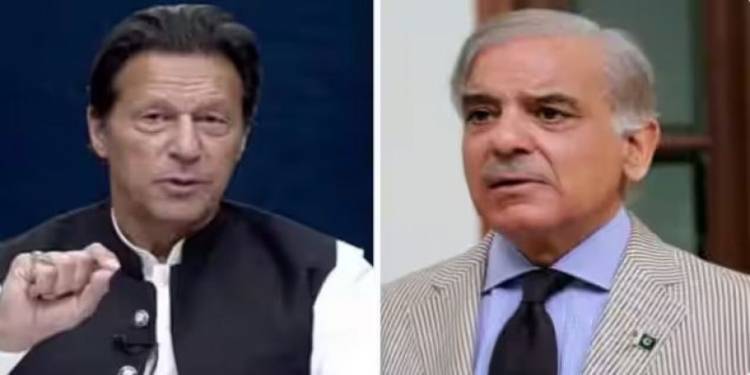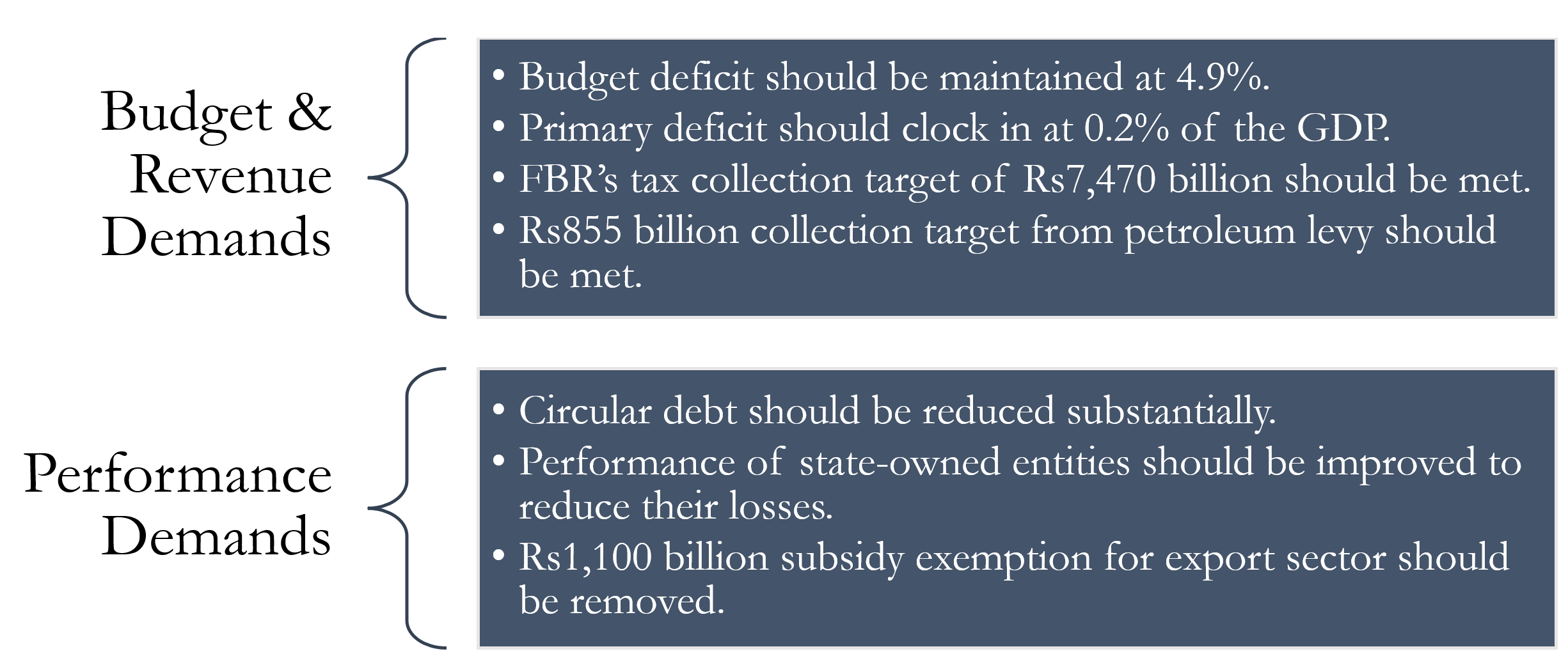
Prime Minister Shehbaz Sharif has invited his political rival Pakistan Tehreek-e-Insaf (PTI) Chairman Imran Khan to an all-parties conference (APC) aimed at resolving the economic and political crisis being faced by the country.
According to the statement issued by Information Minister Marriyum Aurangzeb, the premier is making efforts to bring chiefs of all political parties to the table for joint discussions and find solutions to address national challenges.
She further revealed that federal minister Ayaz Sadiq has initiated approaching top PTI leaders including Asad Qaiser and Pervez Khattak to ensure their participation in the upcoming summit.
The conference will be held in Islamabad on February 7.
The scheduled talks with IMF delegation, headed by Pakistan Mission Chief, Nathan Porter, commenced on Tuesday, 31st January 31, 2023. The government’s delegation, led by Finance Minister, Ishaq Dar, seems hopeful to end the months-long stalemate with the global lender of last resort. Those at the helm of affairs have already started implementing IMF requirements in the form of the recent rupee devaluation and subsequent fuel price hikes.
However, with only $3.7 billion left in the SBP’s official reserves, Pakistan has no alternative left except for succumbing to IMF’s demands. The country is seeking a $1 billion loan tranche as part of the $7 billion extended fund facility availed in 2019. Yet, the situation of deadlock has persisted for months as the funds has demanded strict fiscal discipline which authorities at the Pakistani side are reluctant to display.

During the first round of talks, Pakistani officials briefed the mission about the government’s strategy to implement the Fund’s conditionalities. The intention to resume the program is clear as on the revenue front, imposition of additional taxes on petroleum products, on imports, and tax on FX gains of banks is likely to be part of a mini-budget. Additionally, rationalization of the energy tariffs are also likely to be implemented in line with the Fund’s demands.
As per a report by Arif Habib Ltd, “We believe, these measures are likely to get the program back on track and pave the way for the release of the next tranche of ~USD 1.2bn in Feb ’23. With the 10th review also due in early 2023 (1Q) – combining the two reviews remains a possibility though this may further delay the IMF disbursement.”
“The government is set to bring a mini-budget where a tax of 1-2% flood levy will be imposed on imports. Our estimates suggest that this will help generate additional revenue of PKR 90-100bn in the second half of the ongoing fiscal year. In addition, additional tax to the tune of 40% will be imposed on Commercial Banks’ FX income, with collection arriving at PKR 48bn,” it further adds.
Further, as reported by local media outlets, the IMF has allowed the government to provide subsidies to low income groups through the Benazir Income Support Program (BISP). This step is necessary to mitigate the impact of fiscal and monetary tightening on the lowest strata of the society.
“Letting the market mechanism prevail is the need of the hour, but the fallout from it would further propel inflation as fuel and food prices will go up. An effective way to deal with it is by providing handouts through frameworks like BISP rather than controlling the exchange rate and providing a blanket relief,” says economist Fahd Ali.
According to the statement issued by Information Minister Marriyum Aurangzeb, the premier is making efforts to bring chiefs of all political parties to the table for joint discussions and find solutions to address national challenges.
She further revealed that federal minister Ayaz Sadiq has initiated approaching top PTI leaders including Asad Qaiser and Pervez Khattak to ensure their participation in the upcoming summit.
The conference will be held in Islamabad on February 7.
Read also: Government On Its Toes As IMF Delegation Arrives For Talks
The scheduled talks with IMF delegation, headed by Pakistan Mission Chief, Nathan Porter, commenced on Tuesday, 31st January 31, 2023. The government’s delegation, led by Finance Minister, Ishaq Dar, seems hopeful to end the months-long stalemate with the global lender of last resort. Those at the helm of affairs have already started implementing IMF requirements in the form of the recent rupee devaluation and subsequent fuel price hikes.
However, with only $3.7 billion left in the SBP’s official reserves, Pakistan has no alternative left except for succumbing to IMF’s demands. The country is seeking a $1 billion loan tranche as part of the $7 billion extended fund facility availed in 2019. Yet, the situation of deadlock has persisted for months as the funds has demanded strict fiscal discipline which authorities at the Pakistani side are reluctant to display.

During the first round of talks, Pakistani officials briefed the mission about the government’s strategy to implement the Fund’s conditionalities. The intention to resume the program is clear as on the revenue front, imposition of additional taxes on petroleum products, on imports, and tax on FX gains of banks is likely to be part of a mini-budget. Additionally, rationalization of the energy tariffs are also likely to be implemented in line with the Fund’s demands.
As per a report by Arif Habib Ltd, “We believe, these measures are likely to get the program back on track and pave the way for the release of the next tranche of ~USD 1.2bn in Feb ’23. With the 10th review also due in early 2023 (1Q) – combining the two reviews remains a possibility though this may further delay the IMF disbursement.”
“The government is set to bring a mini-budget where a tax of 1-2% flood levy will be imposed on imports. Our estimates suggest that this will help generate additional revenue of PKR 90-100bn in the second half of the ongoing fiscal year. In addition, additional tax to the tune of 40% will be imposed on Commercial Banks’ FX income, with collection arriving at PKR 48bn,” it further adds.
Further, as reported by local media outlets, the IMF has allowed the government to provide subsidies to low income groups through the Benazir Income Support Program (BISP). This step is necessary to mitigate the impact of fiscal and monetary tightening on the lowest strata of the society.
“Letting the market mechanism prevail is the need of the hour, but the fallout from it would further propel inflation as fuel and food prices will go up. An effective way to deal with it is by providing handouts through frameworks like BISP rather than controlling the exchange rate and providing a blanket relief,” says economist Fahd Ali.

